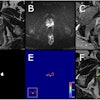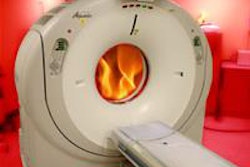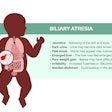
Prof. Sir Howard Middlemiss died nearly 30 years ago, but he was a radiological giant of his time and his memory lives on. I once heard a quote attributed to him that further elevated him in my mind. Apparently, he wanted a sign put up in the reception area of the radiology department of the Bristol Royal Infirmary in U.K., stating: "We are not in the business of exclusion."
This adage could equally be a rallying cry for today's radiologists -- particularly if you have high clinical standards and loathe sloppiness of medical thought, word, and deed. Specifically, if you believe that sloppiness of deed stems from sloppiness of word, which in turn derives from sloppiness of thought.
 Dr. Paul McCoubrie is a consultant radiologist at Southmead Hospital in Bristol, U.K.
Dr. Paul McCoubrie is a consultant radiologist at Southmead Hospital in Bristol, U.K.
When I was a newly appointed consultant (or senior radiologist), the terms "rule out x" or "exclude y" on a radiology request used to be minor irritations. I was more forgiving. Nowadays, I just can't abide them. It seems that every other request now bears these poisonous words. So I asked clinicians why they write this. They always state, "Well, obviously I didn't mean that." So why did you put it then? I just don't understand why it is so commonplace in modern medicine. I don't know what has changed.
Some of my colleagues frown at me, puzzled at clumps of hair that I've just torn out (again). Indeed, many of those reading this may be wondering why I am getting immensely frustated. Just why is "exclusion" or "ruling out" so bad? It isn't pedantry, honestly; let me explain.
First up, it is an anathema to high standards of medical practice. It heralds a move away from medical diagnostic acumen, based on knowledge and expertise. The backbone of Western medicine, probabilistic hypothetico-deductive reasoning, is rejected. Diagnostic indecision is embraced "just in case." It is clinically and morally lazy.
Second, it reveals ignorance on behalf of the requester. Now I am no guru of clinical epidemiology. Quite the reverse. I've always found medical stats textbooks a reliable cure for insomnia. But ask a junior doctor about Bayesian probabilities and 9 out of 10 of them fish-mouth quite predictably. I remind them that virtually no radiological test is sufficiently sensitive and specific to "rule out" anything. Ever. Occasionally, there is a glimmer of recognition when I mention pre- and post-test probabilities. Not often, though.
Third, such language influences thoughts. I hear otherwise sensible doctors say things such as, "Well, the CT excluded a hepatorhubarboma." To which I cannot help but say, "No, the CT is normal, but it doesn't exclude a hepatorhubarboma." Clinicians develop inappropriate dependence on and faith in test results, forgetting the patient whose signs and symptoms are screaming the diagnosis.
Fourth, it is wasteful of taxpayer's money. Inadequate triage leads to high negative rates and cost-inefficiency. For example, an audit of our last 1,000 CT urograms and the pickup rate for upper tract transitional cell carcinoma was just 3%. Similarly, about 25% of CT pulmonary angiography scans were positive a decade ago; it felt like a worthy and interesting thing to do. Now the pickup rate is in single figures. Normal pulmonary arteries were once a rare and fascinating structure, but the sheer volume of the scan we all look at has rendered them distinctly mundane. Finding a significant thrombus these days brings the registrars running to gawp.
Last, and most important, "ruling out" is bad for patients. It is not that patients like having tests (they don't). Nor is it that tests are risky (they most certainly can be). It isn't even the diagnostic delay or personal inconvenience that multiple investigations bring. It is that the doctor-patient relationship is betrayed: Inappropriately extensive investigation apes thorough and hence, caring, medicine. The truth is the doctor is transferring risk to the patient under the guise of being thorough. "Ruling out" is defensive medicine, plain and simple.
The only way forward is a zero-tolerance approach. All paper requests are stamped with Prof. Middlemiss' wise words and politely returned. It wouldn't be too much to program any order comms system to screen for the offending phrases (including the ugly "r/o") and automatically reject them with the message: "Error 404: It looks like you are trying to phrase a clinical question using a negative diagnostic paradigm." If they do it three times, the system crashes irreversibly. Clinicians will soon get the message.
Dr. Paul McCoubrie is a consultant radiologist at Southmead Hospital in Bristol, U.K.
The comments and observations expressed herein do not necessarily reflect the opinions of AuntMinnieEurope.com, nor should they be construed as an endorsement or admonishment of any particular vendor, analyst, industry consultant, or consulting group.



















